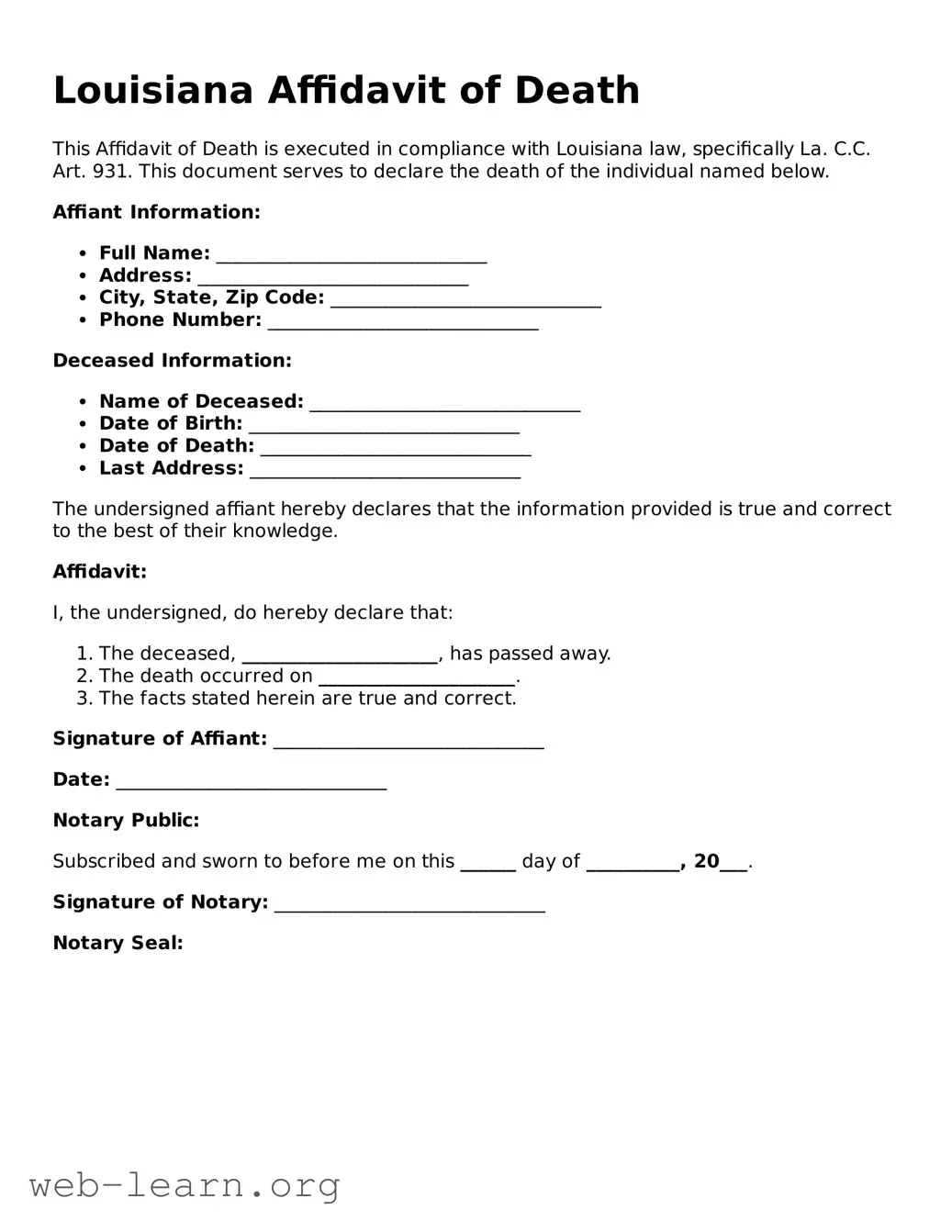Louisiana Affidavit of Death
This Affidavit of Death is executed in compliance with Louisiana law, specifically La. C.C. Art. 931. This document serves to declare the death of the individual named below.
Affiant Information:
- Full Name: _____________________________
- Address: _____________________________
- City, State, Zip Code: _____________________________
- Phone Number: _____________________________
Deceased Information:
- Name of Deceased: _____________________________
- Date of Birth: _____________________________
- Date of Death: _____________________________
- Last Address: _____________________________
The undersigned affiant hereby declares that the information provided is true and correct to the best of their knowledge.
Affidavit:
I, the undersigned, do hereby declare that:
- The deceased, _____________________, has passed away.
- The death occurred on _____________________.
- The facts stated herein are true and correct.
Signature of Affiant: _____________________________
Date: _____________________________
Notary Public:
Subscribed and sworn to before me on this ______ day of __________, 20___.
Signature of Notary: _____________________________
Notary Seal:
